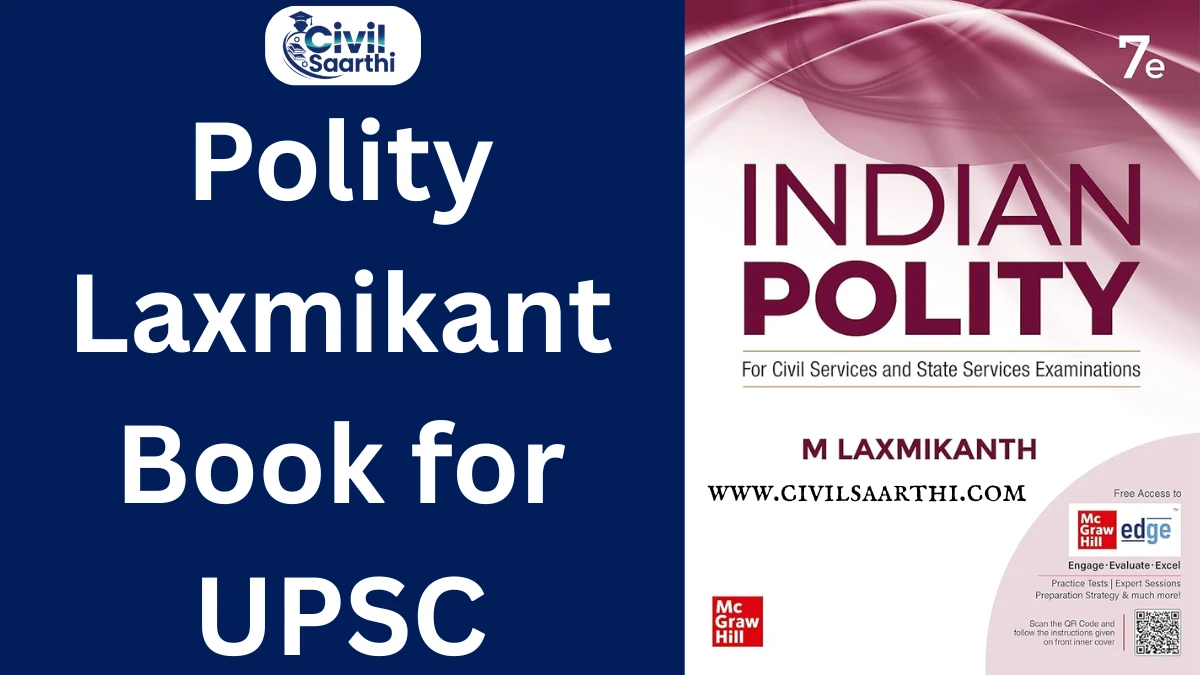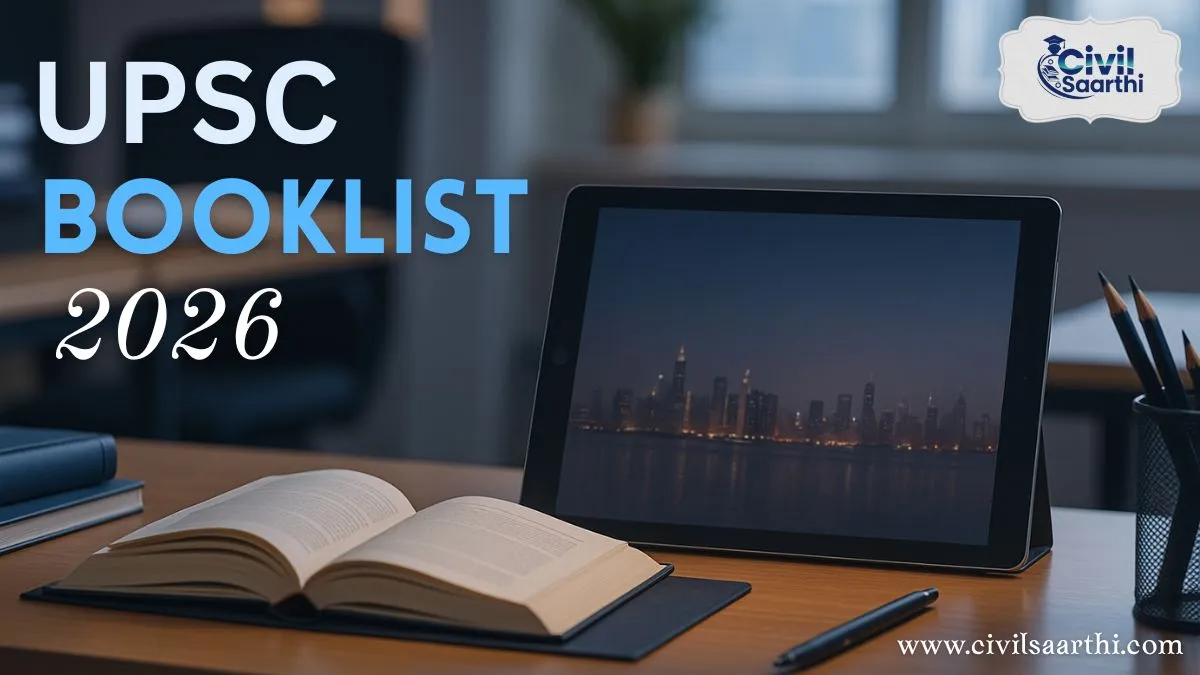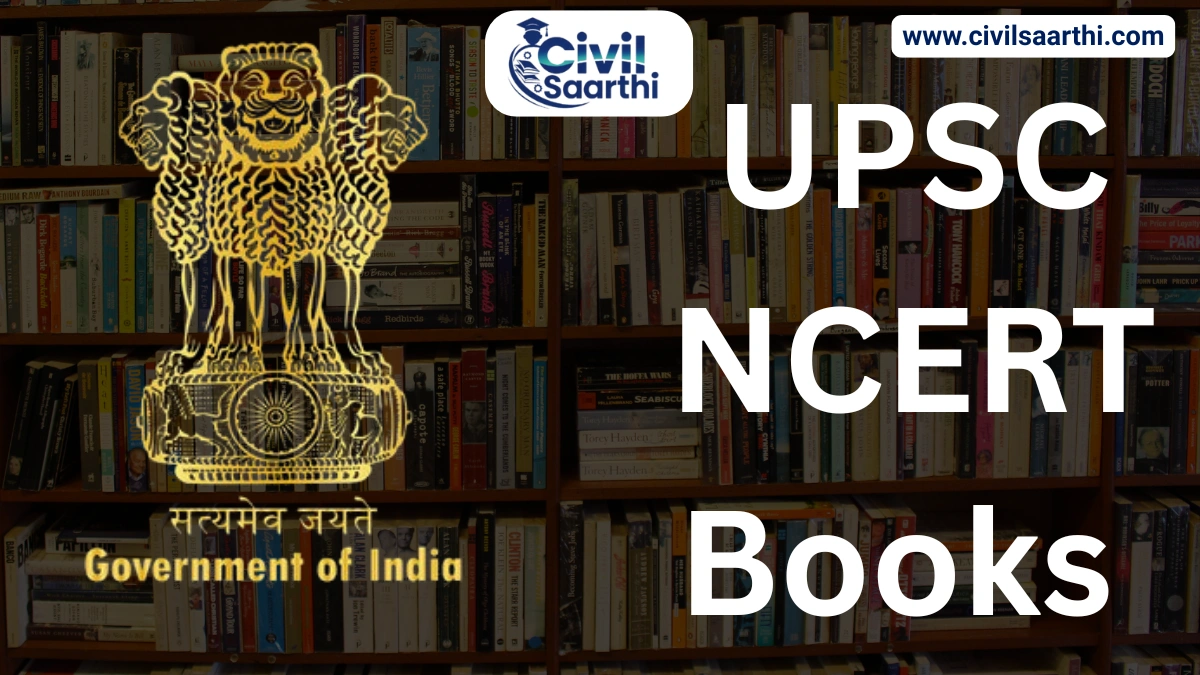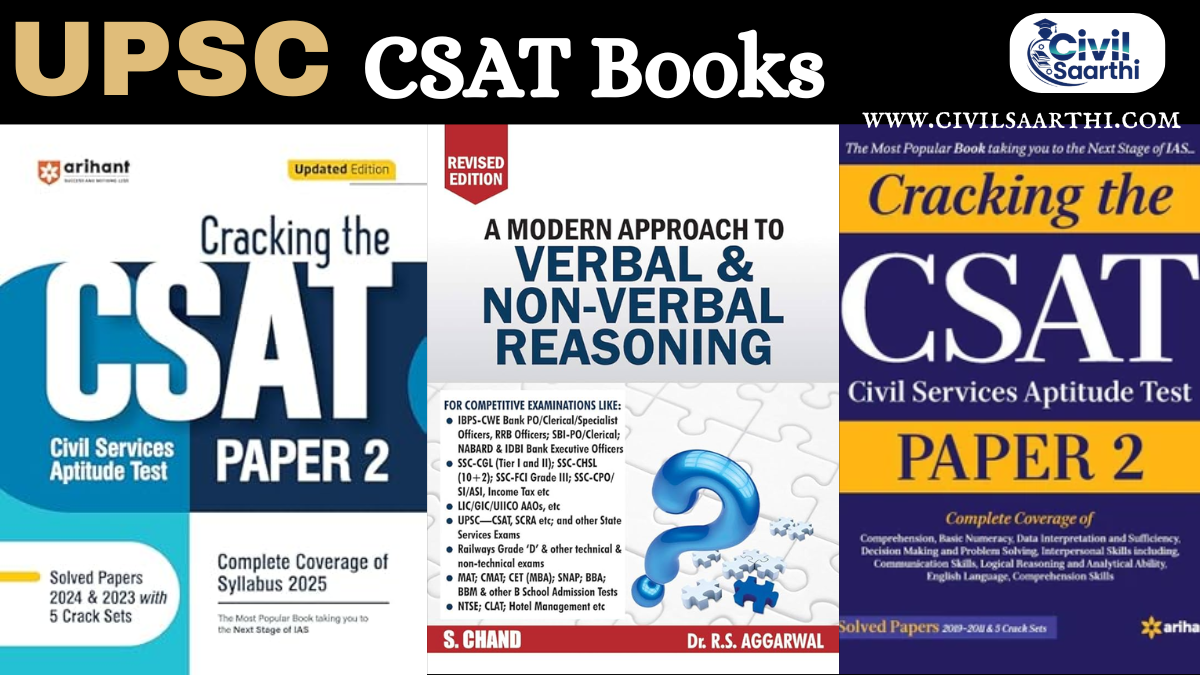The journey to crack the UPSC Civil Services Examination (CSE) begins with building a strong foundation in core subjects, and Indian Polity is one of them. Among the vast range of books and study materials available in the market, ‘Indian Polity’ by M. Laxmikanth has stood the test of time and remains the most recommended book for UPSC aspirants. Whether you are a beginner or revising the subject, this book is considered a one-stop solution to understand the basics of Indian Polity in a clear and structured manner.
In this article, we will explore why Indian Polity by Laxmikanth is hailed as the best book for UPSC preparation, what makes it essential, how to effectively study it, and how it aligns with the demands of the UPSC Prelims and Mains exams.
Why is Indian Polity Important for UPSC?
The UPSC syllabus for both Prelims and Mains lays significant emphasis on Indian Polity. For Prelims, questions test factual and conceptual clarity. For Mains (particularly GS Paper II), in-depth analytical knowledge is required. Thus, having a single comprehensive book that caters to both factual accuracy and conceptual clarity is extremely helpful.
Weightage in UPSC Exam:
- Prelims: 10–15 questions each year on average
- Mains (GS Paper II): Direct and indirect questions on the Constitution, governance, political institutions, and legal structures
- Interview: Understanding of political systems, constitutional debates, and governance issues
Polity Laxmikanth Book for UPSC – Chapter-Wise Breakdown
The Polity Laxmikanth Book for UPSC covers a wide range of topics from constitutional development to current governance practices. The consolidated table below provides a complete chapter-wise breakdown of what to expect from each section of the book. Every chapter is relevant for the UPSC Prelims and Mains and is aligned with the official UPSC syllabus.
Polity Laxmikanth Book for UPSC – Chapter-Wise Breakdown | |
| Chapter Category | Key Topics Included |
| Historical Background & Constitution | British Acts (1773–1947), Making of Constitution, Salient Features, Preamble |
| Union & State Government | Union & Its Territory, Citizenship, FRs, DPSPs, FD, State Reorganization |
| Central Government | President, Vice President, Prime Minister, Council of Ministers, Parliament |
| State Government | Governor, CM, State Legislature, High Courts |
| Judiciary | Supreme Court, Judicial Review, Judicial Activism, Independence of Judiciary |
| Centre-State Relations | Legislative, Administrative, Financial Relations, Inter-State Councils |
| Local Government | Panchayati Raj (73rd Amendment), Municipalities (74th Amendment) |
| Union Territories & Special Areas | Provisions for UTs, Scheduled and Tribal Areas |
| Constitutional Bodies | UPSC, Finance Commission, Election Commission, CAG |
| Non-Constitutional Bodies | NITI Aayog, NHRC, SHRC, CIC, CVC, CBI |
| Emergency Provisions | National, State, and Financial Emergency |
| Amendment of the Constitution | Major Amendments, Basic Structure Doctrine |
| Political Dynamics | Political Parties, Anti-Defection, Pressure Groups, National Integration |
| Special Provisions | For SCs, STs, BCs, Minorities, Official Language Provisions |
| Miscellaneous | Tribunals, Cooperative Societies, Official Language, Schedule Review |
Role of Laxmikanth in UPSC Mains Answer Writing
While Laxmikanth is primarily considered for Prelims, it is also highly relevant for UPSC Mains GS Paper II, which includes:
- Indian Constitution
- Governance
- Role of various constitutional and non-constitutional bodies
- Parliament and State Legislatures
- Judiciary
- Rights issues
Laxmikanth helps you build the core content and examples for answer writing. You can cite constitutional provisions, landmark judgments, roles of institutions, and more.
Common Mistakes to Avoid While Studying Laxmikanth
- Reading Passively: Don’t just read. Take notes, underline, and highlight.
- Ignoring Revisions: Polity requires multiple revisions due to its factual nature.
- Skipping Articles: Try to remember important constitutional articles. UPSC often asks direct questions on them.
- Not Practicing Questions: MCQs and answer writing should be integrated with learning.
- Studying in Isolation: Always link polity topics with current events and issues.
How Toppers Use Laxmikanth Polity Book
UPSC toppers often emphasize the role of Indian Polity by Laxmikanth in their success. Here’s how they utilize the book:
- Multiple revisions (3–5 times)
- Index-based reading for quick revision before exams
- Creating micro notes and flowcharts from complex topics
- Using it for the main answer references and introductions
- Practicing mock tests side-by-side with the book
Polity Laxmikanth Book for UPSC: Preparation Tips
Effective use of the Polity Laxmikanth Book for UPSC involves a strategic reading pattern. Candidates should not try to memorize everything in one go but build understanding gradually. Read each chapter of the Polity Laxmikanth Book for UPSC in the same sequence as given in the syllabus.
- Make short notes from the Polity Laxmikanth Book for UPSC to simplify your revision process.
- Revise the Polity Laxmikanth Book for UPSC at least 3–4 times before the exam for better retention.
- Practice previous year questions based on the Polity Laxmikanth Book for UPSC to understand the exam pattern.
Conclusion: Is Laxmikanth Enough for Polity?
Yes, for most aspirants, Laxmikanth is more than enough for Indian Polity preparation, provided it is read with consistency, revised properly, and linked with current affairs. It is the most reliable and time-tested resource to build your foundation in Indian Polity.
However, for a broader understanding or optional preparation (like PSIR), one may supplement it with other advanced texts, court judgment compilations, or government documents.
Polity Laxmikanth Book for UPSC – FAQs
Which edition of the Polity Laxmikanth Book for UPSC is best?
The latest edition (currently the 7th) is best as it covers all recent constitutional amendments and political developments.
Is Polity Laxmikanth Book for UPSC enough for Prelims and Mains?
Yes, it’s sufficient for Prelims and covers most GS-II concepts for Mains, but supplement with current affairs.
How many times should I read the Polity Laxmikanth Book for UPSC?
Ideally, 3-4 thorough readings followed by multiple revisions will help retain the content better.
Can I skip any chapters in the Polity Laxmikanth Book for UPSC?
No. Each chapter has value, especially for prelims. However, prioritize according to syllabus relevance.
How to revise Polity Laxmikanth Book for UPSC effectively?
Make concise notes, use flashcards for articles, and practice quizzes to test retention.
Should I make notes from Polity Laxmikanth Book for UPSC?
Yes, note-making improves revision and helps during last-minute preparation.
Does Polity Laxmikanth Book for UPSC include recent Supreme Court judgments?
Yes, newer editions include important landmark cases and judicial updates.





